My involvement with Grenada National Ecosystem service Assessment (Grenada NEA)
Hiroe ISHIHARA, Assistant Professor, IPADS
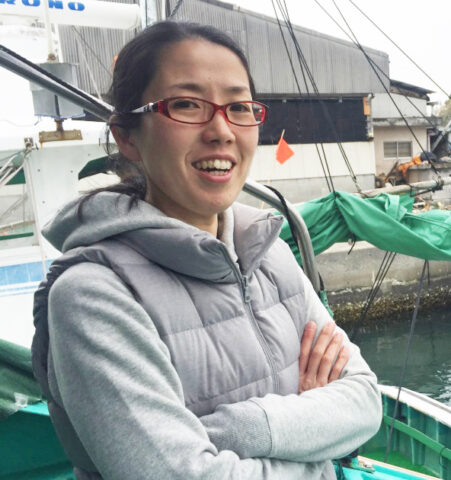
Hiroe Ishihara, an associate professor at Graduate School of Frontier Sciences and associated faculty of Laboratory of Global Fisheries Science in IPADS, has been working on various terrestrial and marine ecosystem management from institutional economics perspective. She is especially interested in designing an alternative environment policy to the market-based approaches, such as Payment for Ecosystem Services (PES). Before coming back to Japan in 2016, she studied in University of Cambridge and where she obtained her Ph.D. degree and worked in Yemen office of United Nation Development Programme (UNDP).
Our society is heavily dependent on the benefits that are provided from the natural environment. Some researchers estimates that the benefit that the human society derives from the ecosystem is equivalent to 33 trillion US dollars per year (Costanza et al., 1997). These various benefits, which are often termed as Ecosystem Services (ES), can be categorised into four typologies: i) provisioning ES, such as food and timber, ii) regulating ES, such as pollination and carbon sequestration, iii) supporting ES, such as nutrient recycling and soil formation and iv) cultural ES, such as recreation and eco-tourism. Based on these four typologies, various global assessments like Millennium Assessment (MA) and The Economics of Ecosystem and Biodiversity (TEEB), as well as the national assessments, such as Japan Satoyama-Satoumi Assessment (JSSA)[1] and UK National Ecosystem Service Assessment (UK NEA)[2], were conducted. Further, policies like Payment for Ecosystem Services (PES) and Reducing Emissions from Deforestation and forest Degradation Plus (REDD+) have been designed and implemented all around the world. By visualizing the values of biodiversity and ecosystems, these assessments have contributed to the conservation of biodiversity and ecosystems.
As part of national ES assessment, Grenada, known as the Spice Isles of the Caribbean’s, is implementing a National Ecosystem Assessment (Grenada NEA) since 2020. This is the first national ES assessment conducted in the small island states under the guidance of Intergovernmental Platform on Biodiversity and Ecosystem Services (IPBES) and the United Nation Environmental Program-World Conservation Monitoring Center (UNEP-WCMC). It aims to produce information and methodologies that contribute to the future NEAs across other island states and states with similar geographies and environmental and economic challenges.
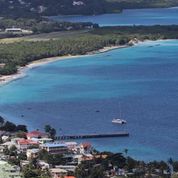
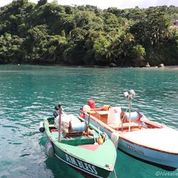
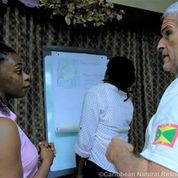
According to the scoping report, which has been already published in April this year, ecosystem and biodiversity of Grenada face a number of pressures and drivers of change due to its vulnerability to climate change and its susceptibility to global economic shocks. The degradation of biodiversity and ecosystems may jeopardize the health of its economy which is heavily dependent on livelihood activities based on ES, such as tourism, fisheries and agriculture. Thus, it is critical for Grenada to implement national ES assessment to visualize how the country is dependent on ES and to be able to prioritize its conservation of biodiversity and ecosystem.
Since the launch of Grenada NEA in November 2020, I am involved as a lead author of one of the chapters, ‘Chapter 5 What is the value of the genetic resources across the different ecosystem types, in particular, the agricultural landscapes of Grenada?.” Although it is my first time to be involved in the project implemented in Grenada, I have been working on the theoretical issues of ES framework and its new concepts, like Nature’s Contribution to People (NCP) and relational values. NCP and relational values, which have been recently launched in IPBES, aim to broaden the notion of ES to incorporate the perspective of local stakeholders towards nature or ecosystems, especially the indigenous ecological knowledge. These new notions are still at its nascent stage and have not been fully incorporated into national ES assessments. It is my sincere hope to incorporate some of the cutting-edge concepts to this Grenada NEA. Grenada NEA is the ideal testing ground for this NCP concept since it places a strong emphasis on stakeholder participation through conducting multiple consultation process. Grenada NEA will not just provide information and methodologies for other small island states, but it will provide contribution to IPBES by developing a pathway to incorporate the perspectives of the local stakeholders to the designing of national and global environmental policy.
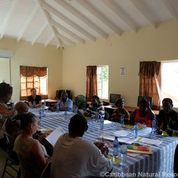
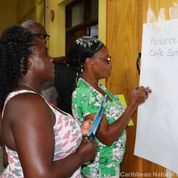
[1] For details see https://ipbes.net/policy-support/assessments/japan-satoyama-satoumi-assessment
[2] For details see http://uknea.unep-wcmc.org